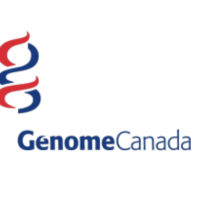
Investment in genomics and precision health research
The federal Minister of Science Kirsty Duncan announced yesterday the results of the 2017 Large-Scale Applied Research Project Competition in Genomics and Precision Health. Vardit Ravitsky is co-lead of one of the projects that got funded by Genome Canada, Genome Quebec and CIHR – she leads the part of the project that explores ethical, legal and social issues associated with prenatal testing. The project’s team got 12.2 million $ for the next 4 years. Congratulations!
This is a second stage of a previously funded study (“Pegasus-1”) that just ended.
________________________
PEGASUS-2: Personalized Genomics for Prenatal Abnormalities Screening Using Maternal Blood: Towards first tier screening and beyond Project leaders: François Rousseau (Université Laval), Sylvie Langlois (University of British Columbia) Lead Genome Centres: Génome Québec (administrative lead), Genome British Columbia Total funding: $12.2 million The discovery that fetal DNA is present in the mother’s blood during pregnancy has led to the development of a genomics-based maternal blood test called NIPS (non-invasive prenatal screening), which is a very reliable test for Down syndrome. In part due to its cost, NIPS is currently only used as a second-tier test, after a mother has tested positive on less costly and less accurate tests, to confirm the finding prior to resorting to amniocentesis.
Making NIPS the entry-level test for Down syndrome could benefit women by more accurately detecting an affected pregnancy with less chance of a false positive result and by providing that result several weeks earlier in the pregnancy. As well, because NIPS can detect other chromosomal abnormalities, its use could enable screening for more conditions. The PEGASUS-2 project’s goal is to provide high-quality evidence to support the use of NIPS instead of traditional screening tests by comparing its use as a first tier and second-tier test in a large cohort of pregnant women. The project will also study the cost effectiveness of expanding screening to other conditions and the ethical, social and legal implications of doing so. It will also provide strategies to promote shared decision-making between couples and healthcare professionals. Finally, it will further develop the NIPS technology to reduce its costs by 50 percent and expand its ability to detect other anomalies, as well as ensuring quality control for clinical NIPS testing in Canada and worldwide.
PEGASUS-2 will enable publicly funded access to a promising genomics technology for all interested pregnant women, while ensuring that couples have access to web-based tools to help their decision making and that all health-care professionals are trained in shared decision-making for prenatal screening.



